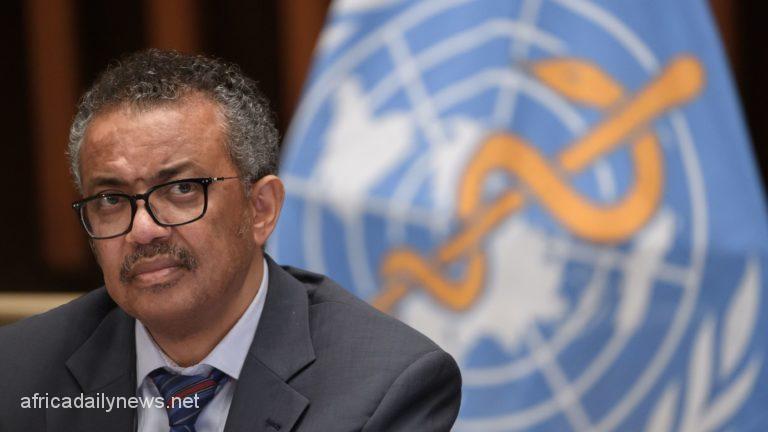The World Health Organisation (WHO), has declared that the number of newly reported Covid-19 cases has dropped dramatically while urging the world to seize the opportunity to end the pandemic.
Africa Daily News, New York recalls that last week, newly reported cases of the disease, which has killed millions since being identified in late 2019, fell to the lowest level since March 2020.
WHO chief Tedros Adhanom Ghebreyesus while speaking to reporters said; ‘We have never been in a better position to end the pandemic,’ he told reporters. ‘We are not there yet, but the end is in sight.’
But the world needed to step up to ‘seize this opportunity’, he added.
‘If we don’t take this opportunity now, we run the risk of more variants, more deaths, more disruption, and more uncertainty.’
Read Also: World’s First Inhalable Covid-19 Vaccine Approved By China
According to WHO’s latest epidemiological report on Covid-19, the number of reported cases fell 12 percent to 4.2 million during the week ending September 4, compared to a week earlier.
But the agency has warned that the dropping number of reported cases is deceptive, since many countries have cut back on testing and may not be detecting the less serious cases.
‘The number of cases that are being reported to WHO we know are an underestimate,’ Maria Van Kerkhove, the WHO technical lead on Covid, told reporters.
‘We feel that far more cases are actually circulating than are being reported to us,’ she said, cautioning that the virus ‘is circulating at a very intense level around the world at the present time.’
Since the start of the pandemic, WHO has tallied more than 600 million cases, and some 6.4 million deaths, although both those numbers are also believed to be serious undercounts.
A WHO study published in May based on excess mortality seen in various countries during the pandemic estimated that up to 17 million people may have died from Covid in 2020 and 2021.
Van Kerkhove noted that going forward there will likely be ‘future waves of infection, potentially at different time points throughout the world, caused by different sub-variants of Omicron or even different variants of concern.’
But, she added, “those future waves of infection do not need to translate into future waves of death.”In a bid to help countries to do what is needed to rein in the virus, the WHO on Wednesday published six policy briefs.
Among the recommendations, the WHO is urging countries to invest in vaccinating 100 percent of the most at-risk groups, including health workers and the elderly, and to keep up testing and sequencing for the virus.










